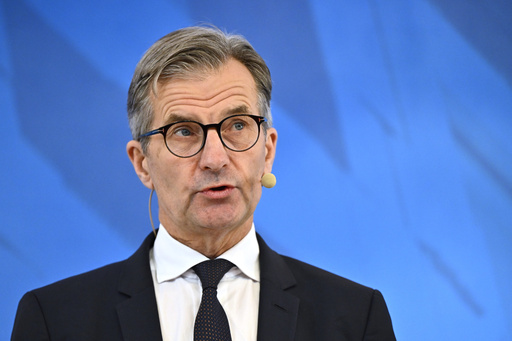
STOCKHOLM — On Thursday, Sweden’s central bank announced a notable reduction in its key interest rate, decreasing it by half a percentage point to 2.75%. This marks the most significant cut the country has seen in over ten years.
The Riksbank indicated that this adjustment, the fourth of its kind this year, aims to bolster the economy and help stabilize inflation around the set target. In their statement, they further noted that if current predictions regarding economic performance and inflation remain unchanged, additional rate cuts could occur in December and potentially in the first half of 2025.
As the year progressed, the monetary policy was progressively loosened in response to declining inflation rates and a persistent weakness in economic activity. The central bank highlighted that despite optimistic projections among economic players for improvements on the horizon, concrete signs of recovery remain scarce.
Recent data from Statistics Sweden revealed an inflation rate of 1.6% in October, which is below the Riksbank’s desired target of 2%. Additionally, the seasonally adjusted unemployment rate stood at 8.5% for the third quarter of 2024. The last time the interest rate was adjusted, it was lowered in September by 0.25 percentage points.
This latest cut is considerable, underscoring a significant monetary policy shift, as reported by Swedish news outlet TT. At its peak in February 2023, inflation reached an alarming 12.0%. The new interest rate will take effect as of October 13, according to the central bank’s announcement.
In contrast, Norway’s central bank opted to keep its policy rate steady at 4.5%. Governor Ida Wolden Bache of Norges Bank expressed that this rate is likely to persist through the end of 2024. The Norwegian central bank has significantly raised its policy rate in recent years to combat inflation, maintaining it at 4.5% since December 2023. This approach has reportedly helped to cool the economy and ease inflation pressures, with the consumer price index recording a rate of 3.0% for the period from September 2023 to September 2024.
Although Sweden is a member of the European Union, it has chosen not to adopt the euro as its currency, while Norway remains outside the EU entirely.
